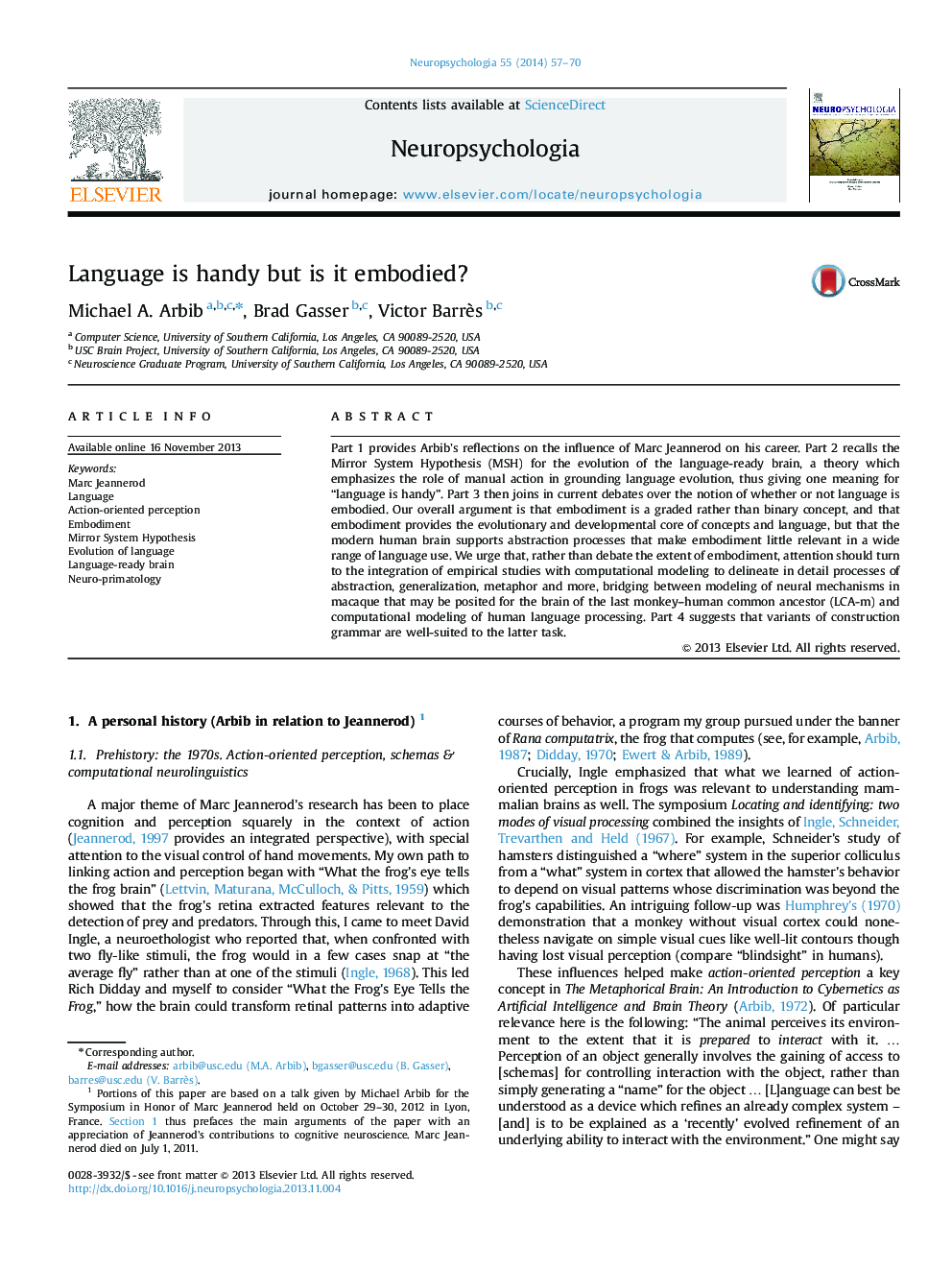| Article ID | Journal | Published Year | Pages | File Type |
|---|---|---|---|---|
| 7321831 | Neuropsychologia | 2014 | 14 Pages |
Abstract
Part 1 provides Arbib's reflections on the influence of Marc Jeannerod on his career. Part 2 recalls the Mirror System Hypothesis (MSH) for the evolution of the language-ready brain, a theory which emphasizes the role of manual action in grounding language evolution, thus giving one meaning for “language is handy”. Part 3 then joins in current debates over the notion of whether or not language is embodied. Our overall argument is that embodiment is a graded rather than binary concept, and that embodiment provides the evolutionary and developmental core of concepts and language, but that the modern human brain supports abstraction processes that make embodiment little relevant in a wide range of language use. We urge that, rather than debate the extent of embodiment, attention should turn to the integration of empirical studies with computational modeling to delineate in detail processes of abstraction, generalization, metaphor and more, bridging between modeling of neural mechanisms in macaque that may be posited for the brain of the last monkey-human common ancestor (LCA-m) and computational modeling of human language processing. Part 4 suggests that variants of construction grammar are well-suited to the latter task.
Related Topics
Life Sciences
Neuroscience
Behavioral Neuroscience
Authors
Michael A. Arbib, Brad Gasser, Victor Barrès,
